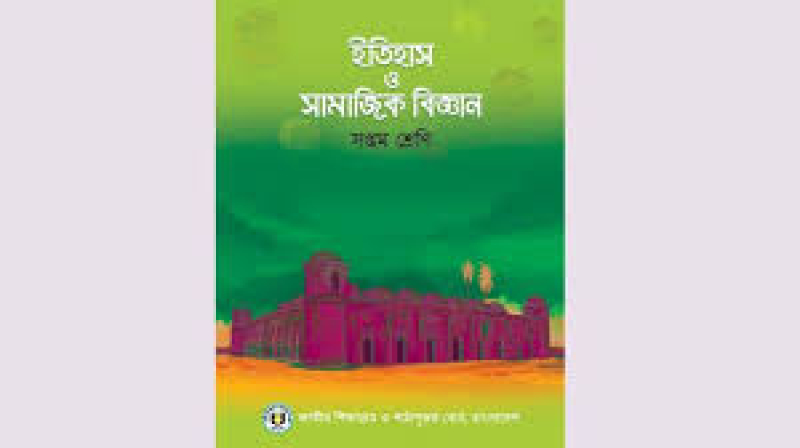- Janaza of six Bangladeshi peacekeepers held at Dhaka Cantonment |
- Bangladesh stock market loses Tk 10,500cr in a week |
- Dhaka’s air turns ‘very unhealthy’ on Sunday morning |
- Project to transform N’ganj into a climate-resilient green city |
- Sustainable, rights-based solutions to Rohingya crisis urged |
Sharifa's Story controversy: Who's right and who's wrong?

The educational community finds itself entangled in a heated debate surrounding the "Sharifa's Story" chapter from a 7th-grade textbook.
The controversy was ignited when a part-time lecturer at a private university took it upon himself to tear out the chapter and, in a widely circulated social media video, expressed vehement opposition to homosexuality and transgender people. The university has reportedly terminated its contract with the teacher in question.
The outrage over the simple inclusion of the words transgender and hijra in the chapter clearly demonstrates the need for educational materials on fostering understanding and acceptance. However, the chapter itself is not without its shortcomings, as it fails to provide clear definitions for key terms like homosexuality and transgender.
Sharmin Sultana Kaniz, a doctor and mother, told Dhaka Tribune: “I cannot give my child such wrong education through textbooks. This is a very wrong move. None of us would have known if this teacher had not made such a statement. How can it say that a transgender person and a hijra person are the same thing?”
She also objected to the inclusion of such a chapter as early as in the 7th grade.
Other parents who acknowledged the need for the chapter also said their problem is that the information is neither clear nor correct.
Joya Sikder, President of Somporker Noya Setu (SNS), an organisation that works to ensure the rights of transgender people, said one of the main flaws in the chapter is its use of the term “hijra”.
“Transgender and hijra are not the same thing. When you think of the term hijra, you assume that this is a person who, because of their biology, is neither male nor female, or both male and female. It is often assumed that they fall into the category of intersex people,” she said.
“In reality, hijra is actually an umbrella term that is used to describe a group of people that may include intersex people, castrated men and also transgender women. This group of people live as a community or family, under a community leader or guru. So hijra is in fact a community, and not a sex or a gender,” the SNS president added.
Members of the hijra community told Dhaka Tribune they appreciate the attempt to introduce children to their community, lifestyle and challenges, but the information portrayed in the chapter is not wholly correct.
When contacted, Education Minister Mohibul Hasan Chowdhury Nowfel said the “Sharifa’s Story” chapter will be discussed with experts and any confusion or controversy in presenting the matter shall be rectified.
Regarding the controversy at the private university, where some students have been protesting the removal of the part-time lecturer, the minister said he will discuss the matter with the university authorities after learning of the details through the University Grants Commission (UGC).
Adding that he has already seen the video on social media, Nowfel said: “One side always tries to destabilize the situation by raising religious issues.”
The Ministry of Education has formed a five-member committee to review the “Sharifa’s Story” chapter. Islamic Arabic University VC Prof Abdur Rashid has been made the convener of this committee, and the other members are Islamic Foundation Governor Mufti Maulana Kafil Uddin Sarkar, NCTB member Masihuzzaman, and Director of Dhaka University IER and Dhaka Aliya Madrasa Principal Prof Mohammad Abdur Rashid.

